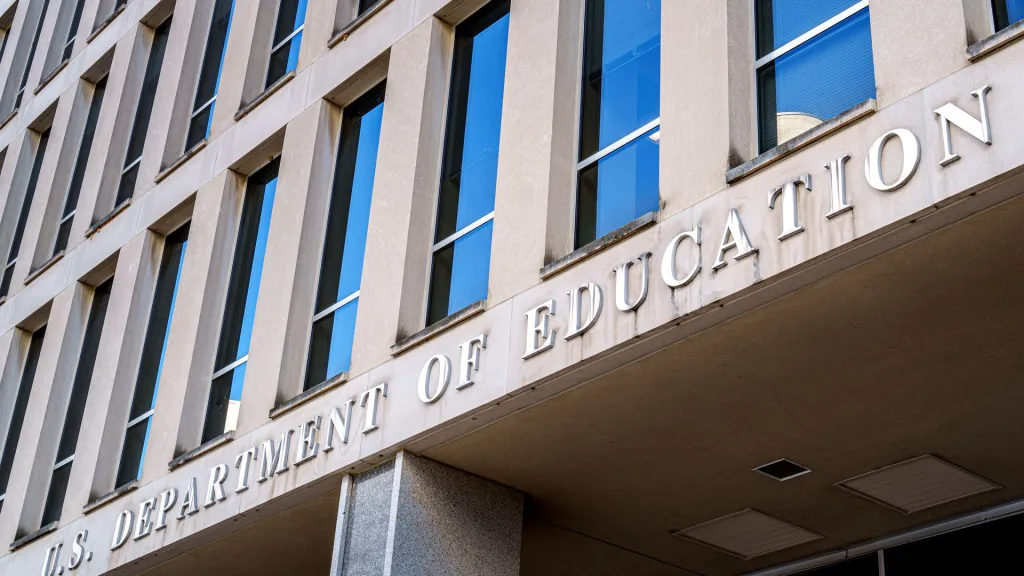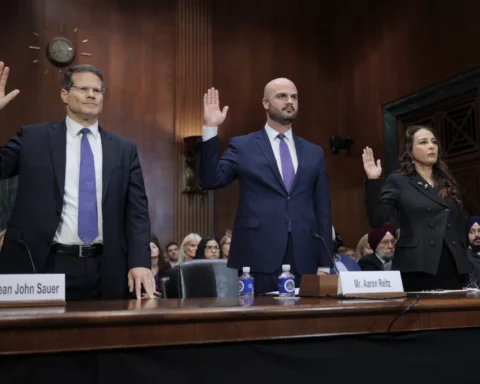By Walter Hudson
The U.S. Department of Education has issued a sweeping directive ordering educational institutions to eliminate race-based considerations from admissions, hiring, and other programs, sparking immediate opposition from civil rights organizations, educational leaders, and advocacy groups.
In a Dear Colleague Letter to schools receiving federal funding, the Department mandated the cessation of race preferences in areas ranging from admissions and hiring to scholarships and disciplinary actions. Schools that fail to comply within 14 days risk losing federal funding.
“With this guidance, the Trump Administration is directing schools to end the use of racial preferences and race stereotypes in their programs and activities,” said Acting Assistant Secretary for Civil Rights Craig Trainor, characterizing the move as “a victory for justice, civil rights laws, and the Constitution.”
The directive, which builds on last year’s Supreme Court decision in Students for Fair Admissions v. Harvard, extends far beyond college admissions to encompass elementary, middle, and high schools. It also targets diversity, equity, and inclusion (DEI) programs, which the Department claims have contributed to “widespread censorship” and a “repressive viewpoint monoculture” on campuses.
The Department’s action specifically prohibits race-based considerations in admissions processes, hiring and promotion decisions, compensation, scholarship and prize distributions, and disciplinary actions. Schools must now evaluate students “according to merit, accomplishment, and character,” according to the directive.
The sweeping nature of the order has raised serious concerns among education experts about its implementation timeline and scope. The 14-day compliance window, in particular, has drawn criticism from school administrators who argue that revamping entire systems of administration, hiring, and student life programs requires more time and careful consideration.
Critics of the directive argue that it represents an overreach of the Department’s authority and misinterprets the Supreme Court’s Harvard decision. While the Court ruled against race-conscious admissions programs at Harvard and the University of North Carolina, many legal experts contend that the ruling’s scope was more limited than the Department’s interpretation suggests.
The Department’s letter also takes aim at what it describes as a “DEI regime” in educational institutions, claiming these programs have fostered censorship through various mechanisms, including “deplatforming speakers who articulate a competing view” and using “bias response teams” to investigate those who object to a school’s racial ideology.
Educational institutions now face the complex task of reviewing and potentially overhauling numerous programs and policies to ensure compliance with the new directive. This includes examining everything from recruitment strategies and scholarship criteria to student organization funding and faculty hiring practices.
The Department has established a complaint system through its Office of Civil Rights for individuals who believe an institution has violated these new guidelines. However, education advocates warn that the rapid implementation timeline could lead to hasty decisions that might inadvertently harm educational equity and access.
As schools scramble to interpret and implement these changes, the directive’s long-term impact on educational equity and institutional diversity remains uncertain. The Department’s enforcement approach and how it will evaluate compliance are yet to be fully detailed, leaving many institutions in a challenging position as they attempt to navigate these new requirements while maintaining their educational missions and values.





